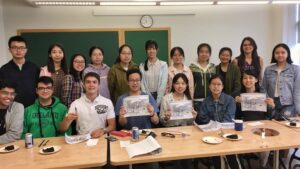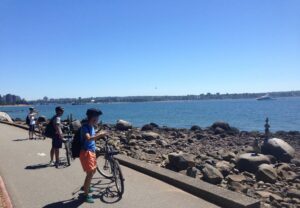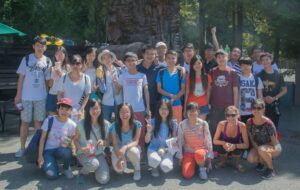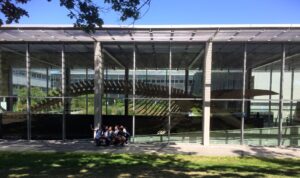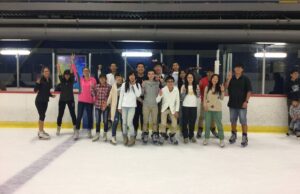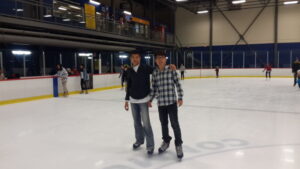The Vancouver Summer Program with UBC Science provides students with the opportunity to study at a top international research university and experience local Vancouver culture.
What you might expect/course format
Courses with UBC Science include in-class and lab portions taught by UBC faculty members, graduate students, and guest lecturers. Courses also include short field trips and other engaging learning opportunities. Students can expect team-based learning activities and assignments.
July 2025 Course Packages
Statistical Literacy and Reasoning in Data Science
In this course, students will develop their statistical literacy and reasoning. They will also build a deeper understanding of data to make data-driven decisions. Through carefully designed lectures, practical exercises, assignments and a group project, participants will acquire a fundamental understanding of study design and data collection. This will empower the students to systematically organize their own analysis projects and collect representative data. The course learning objectives are: i). build basic data literacy and reasoning, ii). improve students’ ability to formulate data-driven problems, iii). design and properly apply statistical methodologies such as data visualizations, t-test, ANOVA, correlation and linear regression, iv). understand data trends, anomalies, and patterns, v). interpret results, and vi). develop written and oral communication skills to present data-driven insights. This course is ideal for students seeking to build a robust methodological foundation in data analysis and statistical reasoning, with applications in diverse fields to support evidence-based decision-making and data-driven insights. By the end of the course students will have completed a full data science project from conception, to understanding the study design, to conducting analysis and finally presenting their findings via oral and written presentation.
Data Science Tools and Advanced Modeling Techniques
In this course, students will gain practical skills to implement the best data science practices. Students will learn how to code effectively using the R programming language throughout this course (no previous R experience is expected from students). They will master data manipulation, figure creation, and the application of advanced statistical models to datasets. Students will also acquire strong cooperation and organization skills by immersing themselves in the world of reproducible research. By applying their command of statistical reasoning, visualization and analysis, students will be empowered to generate powerful data-driven storytelling in the course’s final presentation. The main learning objectives of this course are: i). understand basic R essentials when coding, ii). master data manipulation and visualization, iii). develop reproducible data workflows, iv). acknowledge fundamental machine learning concepts and implement machine learning methods, and v). accurately assess the predictive performance of models. This course is ideal for students seeking to develop “hands-on” technical data science skills that will help them to implement appropriate data analyses and conduct collaborative research in the future.
Prerequisite: No prerequisites
Additional information: Laptop required. Software setup required prior to first class. Setup instructions will be provided.
For more information
For VSP Statistics and Data Science-specific questions, email Julia Peng at vsp@stat.ubc.ca.
Student testimonials
– VSP STAT Student
– VSP STAT Student
– VSP STAT Student
– VSP STAT Student
– VSP STAT Student

